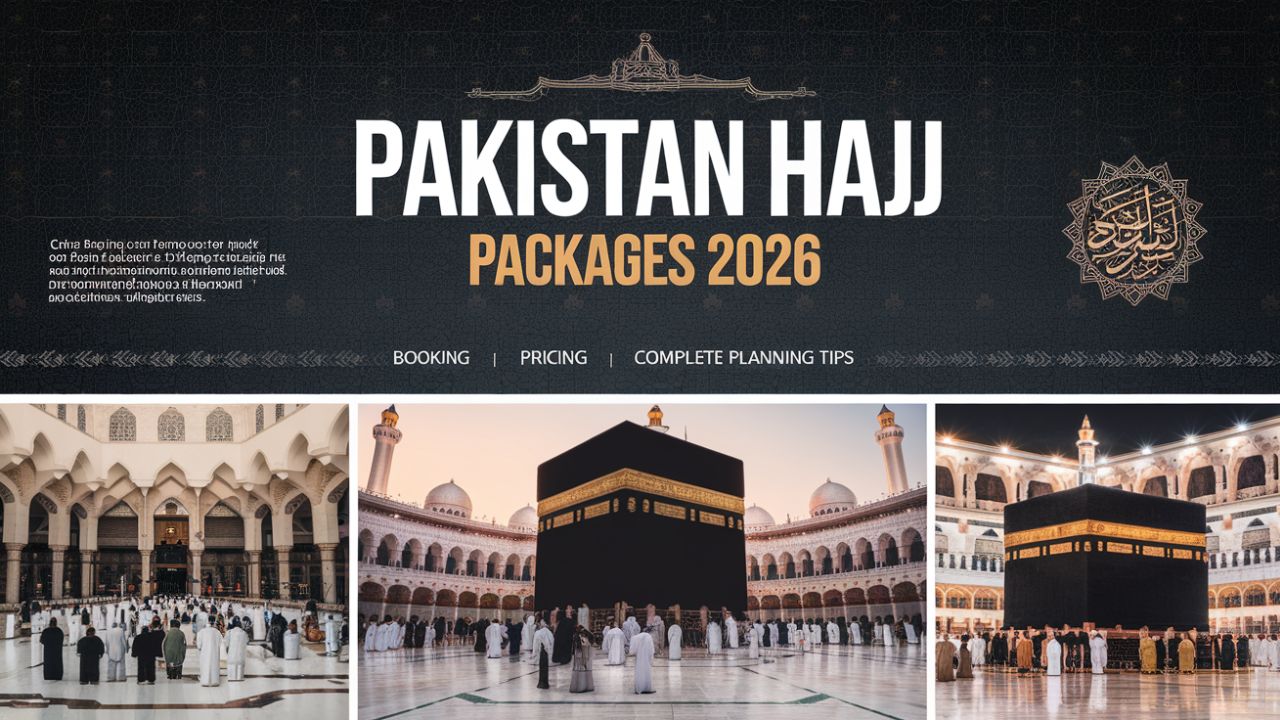Pakistan Extends Hajj 2026 Registration Deadline as 313,000 Applicants Sign Up
The Pakistani Ministry of Religious Affairs has extended the Hajj 2026 registration deadline by two days following overwhelming public response, with more than 313,000 citizens completing their applications for the holy pilgrimage.
Registration Surge Forces Deadline Extension
Originally set to close on July 9, the registration period has been extended to July 11 due to exceptional demand from Pakistani pilgrims. The ministry’s decision reflects the significant interest shown not only by domestic applicants but also by Pakistani communities living overseas.
This remarkable response represents a substantial increase from initial projections, with registration numbers jumping from an estimated 250,000 to over 313,000 within just days of the deadline approach.
How the Registration Process Works
The Ministry of Religious Affairs launched the first phase of Hajj 2026 registration last month, implementing a streamlined system designed to accommodate the high volume of applications. Prospective pilgrims can register through two convenient methods:
Online Registration: Applications are accepted through the official portal at applyonline.hajjinfo.org, providing 24/7 access for applicants nationwide.
Bank Applications: Fifteen designated banks across Pakistan, including HBL, MCB, UBL, Soneri Bank, Dubai Islamic Bank, Faisal Bank, and Bank of Khyber, are processing applications in person.
The current registration phase requires no upfront payment, making the process accessible to all interested pilgrims regardless of their immediate financial capacity.
Two-Phase Selection System Explained
Pakistan’s Hajj program operates on a dual-track system, giving pilgrims flexibility in their pilgrimage arrangements:
Government Scheme: Managed directly by the Ministry of Religious Affairs, offering standardized services and pricing.
Private Operator Scheme: Run by licensed private companies, typically providing additional services and accommodation options.
Registered applicants will select their preferred scheme during the second phase, when the ministry releases detailed policy frameworks, pricing structures, and operational requirements.
Learning from 2025 Hajj Challenges
The robust early response to 2026 registration comes after significant challenges during the 2025 Hajj season, when several private operators failed to fulfill their obligations to Pakistani pilgrims.
During Hajj 2025, Pakistan received an allocation of 179,210 pilgrims, split equally between government and private schemes. While the government successfully facilitated travel for over 88,000 pilgrims, numerous private companies encountered operational difficulties including payment processing delays and communication breakdowns.
These problems left thousands of registered applicants without proper travel arrangements, prompting the ministry to implement stronger oversight measures for the 2026 season.
Extended Registration Accommodates Affected Pilgrims
The current registration process specifically accommodates Pakistani citizens who were unable to complete their pilgrimage under private schemes in previous years. This includes:
- Applicants affected by private operator failures in 2025
- Overseas Pakistani communities worldwide
- First-time pilgrims seeking reliable arrangements
- Previous applicants seeking alternative scheme options
Mandatory Biometric Verification Required
All applicants must complete biometric verification by the July 11 deadline to ensure eligibility for either government or private Hajj schemes. This comprehensive data collection system helps prevent fraud and ensures accurate pilgrim identification throughout the process.
The verification process also supports the ministry’s efforts to maintain accurate records and improve service delivery for future Hajj seasons.
What Happens Next
Following the completion of initial registration, the Ministry of Religious Affairs will announce the second phase timeline, which will include:
- Detailed scheme information for both government and private options
- Final pricing structures and payment schedules
- Specific terms and conditions for each scheme type
- Selection criteria and ballot processes if demand exceeds allocation
The ministry emphasizes that current registration serves as a preliminary step, with comprehensive policy details to be released separately once the registration phase concludes.
Record Demand Reflects Growing Interest
The surge in applications demonstrates the enduring importance of Hajj pilgrimage among Pakistani Muslims, with registration numbers increasing by more than 25% in the final days before the original deadline.
Ministry officials continue monitoring registration trends and may consider additional extensions if processing capabilities at designated centers nationwide become overwhelmed. However, the current extension to July 11 is expected to accommodate the majority of interested applicants.
This exceptional response positions the 2026 Hajj season as potentially one of the largest Pakistani pilgrimages in recent years, reflecting both renewed confidence in the registration system and the spiritual commitment of Pakistani Muslims to fulfill this fundamental pillar of Islam.
